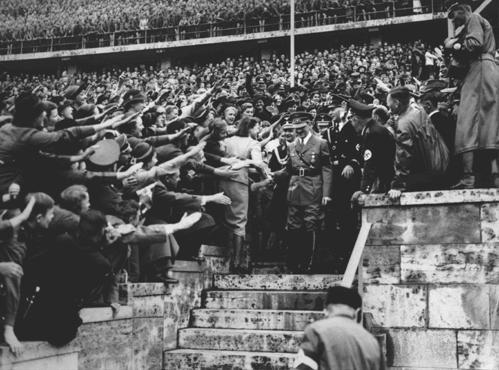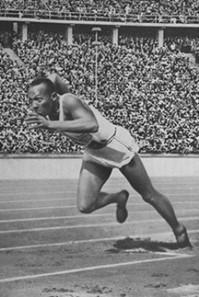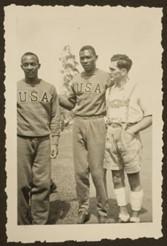
The Nazi Olympics - Part II: America’s Black Athletes

Adolf Hitler was appointed Chancellor of Germany at the end of January 1933. Within just a few months, he gained emergency power, opened the first concentration camp, Dachau, for his political opponents, and began persecution of Jewish Germans. By 1935, Jews had lost their rights and protections as German citizens. And so, many democracies in the west faced the question of whether their participation in the 1936 Nazi Olympics would show support for the Nazi regime. For black American athletes, this question had another facet: Given the racism and discrimination they suffered in the United States, should they represent their own country in Germany, a country committed to a racist ideology?
During the 1930s black people in the United States were subject to the Jim Crow laws, laws which kept them segregated, impoverished and vulnerable to violence. At the time, even the United States military was segregated. And for black athletes, opportunities to train and participate were restricted. The debate about participation in the Nazi Olympics was particularly difficult for them.
If they agreed to participate, the Olympics would provide them with the opportunity to show the world their talents and prowess. They were concerned, however, with how they might be treated once they arrived in Nazi Germany. If they boycotted the Olympics, they would be showing sympathy with the prejudice and discrimination against German Jews. This was an uncomfortable choice, as they, as a group, were experiencing prejudice and discrimination in America.
Ultimately, 18 black American athletes (16 men and 2 women) competed in the 1936 Olympic Games in Berlin. The African American athletes on the 1936 US Olympic team brought home 14 medals: 8 gold; 4 silver; and 2 bronze.

Jesse Owens, a high school and Ohio State University standout in track and field was one of the black American athletes to participate in the Nazi Olympics. Owens’s performance at the 1936 Olympics has become legendary for his outstanding, gold-medal results in the 100-meter, the 200-meter, the long jump, and the 4 × 100-meter relay. A myth that has persisted till this day tells the story that Hitler refused to shake hands with Owens because he was black. In reality, by the second day of competition, when Owens won the 100-meter final, Hitler was no longer congratulating any of the winning athletes. One day earlier, the Olympic Committee leadership expressed anger that Hitler had publicly congratulated only a few German and Finnish winners before leaving the stadium. The Olympic Committee insisted that Hitler congratulate all winners of refrain from congratulating any of them. The American press, unaware of the Olympic Committee ruling, perpetuated the myth that Hitler had specifically refused to shake Owen’s hand.
Olympic athlete Jesse Owens won four medals at the 1936 Olympic Games in Berlin, Germany:
100-meter dash, gold
200-meter dash, gold
Broad (long) jump, gold
4x100-meter relay, gold

Jesse Owens became a favorite of the German crowds in Berlin. At the end of the games, Owens returned home to the United States, to friends and family and to discrimination and Jim Crow. In 1972, Owens reflected back on that time. “After I came home from the 1936 Olympics with my four medals, it became increasingly apparent that everyone was going to slap me on the back, want to shake my hand or have me up to their suite. But no one was going to offer me a job.”